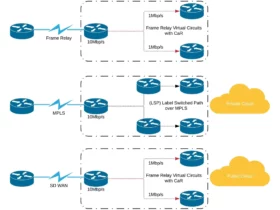An effective and well-managed supply chain, as the backbone of every successful organisation, may have a significant impact on a company’s competitiveness, profitability, and customer happiness. Understanding market trends and consumer preferences is essential for gaining efficiency and staying ahead in the B2B sector in the United Kingdom.
This helps organisations to make educated decisions that streamline processes, improve overall performance, and unearth key industry insights. In this post, we will look at the impact of B2B market research and how it affects the supply chain.
Streamlining Inventory Management
Overstocking is a major worry for businesses since it locks up money and raises storage expenses. By providing precise data on customer behaviour and industry trends, B2B market research assists organisations in identifying possible overstocking hazards. They may fine-tune their plans using this knowledge, lowering the possibility of surplus inventory and the accompanying expenses.
Stock-outs, on the other hand, might result in lost sales opportunities, disgruntled consumers, and harm to a company’s brand. Marketers must forecast swings in demand and support businesses in avoiding stock-outs by maintaining appropriate inventory levels. Suppliers may produce more accurate demand projections by assessing existing patterns, allowing for effective restocking and reducing the likelihood of stock-outs.
It can also help you understand what factors impact inventory turnover rates. Managers might examine previous sales data to uncover patterns that may have an impact on turnovers, such as promotional events, changes in customer behaviour, or economic developments. With this information, suppliers may alter their supply chain procedures proactively to maintain ideal inventory turnover rates, improving overall efficiency and lowering holding costs.
Supplier Selection & Relationship Management
A well-established supplier connection allows businesses to interact with them directly, share information, and collaborate to simplify operations. This collaborative approach supports in the discovery of potential for improvement, such as shorter lead times, better order fulfilment, and cheaper supply chain costs.
Moreover, the data collated via research could offer corporations the required leverage during negotiations. Companies who have information on current market rates and competition products may bargain for better discounts and conditions. This not only saves money but also enhances the overall supply chain by providing a steady and continuous flow of high-quality goods and services.
AI-powered analytics can help evaluate potential suppliers’ financial stability. AI can swiftly identify any financial risks linked with individual suppliers by analysing financial accounts, credit scores, and other pertinent data. Some companies can avoid potential disruptions caused by supplier failure or economic challenges by using this proactive strategy.
Optimising Transportation & Logistics
Temperature control, handling, and urgency needs may differ amongst items. Market research enables businesses to connect these needs with the right modes of transportation, such as road, rail, air, or marine freight. This not only guarantees that things arrive in pristine shape, but it also aids in cost reduction by reducing excessive spending on premium services.
On top of that, businesses can assess factors like distance, congestion levels, tolls, and border crossings to identify the routes that offer the shortest lead times and lowest costs. Companies may contribute to sustainability efforts by choosing the most efficient routes, which decrease transit delays, fuel prices, and the total carbon footprint of their supply chain.
Understanding transportation costs is critical for optimising supply chains. Comprehensive data on freight rates, fuel prices, and other relevant costs enables businesses to negotiate better agreements with suppliers and uncover more cost-effective alternatives. This aids in budget optimisation and profitability, especially in a competitive B2B market where cost management is critical for keeping a competitive advantage.
Sustainability & Environmental Considerations
Insights gleaned from business-to-business market research can offer light on evolving environmental legislation and industry standards, leading businesses to align their supply chain activities with these needs. This not only helps businesses avoid potential penalties and legal concerns, but it also portrays them in the market as responsible and diligent participants. Corporations may demonstrate their commitment to sustainability by staying ahead of environmental trends, recruiting environmentally concerned customers and earning a competitive edge.
It also makes it easier to identify sustainable packaging alternatives and waste reduction methods. The need for ecologically friendly packaging is increasing as customers become more conscious of trash creation. The research findings can highlight the most popular and environmentally friendly packaging materials, allowing managers to make educated decisions that lessen their environmental impact.
Last Thoughts
With important insights and information, organisations may enhance forecasting precision, streamline inventory management, and rapidly adapt to any changes. Additionally, the introduction of AI technology boosts these benefits by improving analytics for smarter decision-making and supplier relationship management. Using b2b market research allows businesses to build more efficient, robust, and customer-focused supply chains, offering them a competitive advantage in the turbulent B2B industry.













